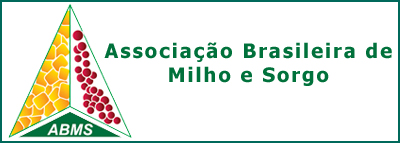TROPICAL MAIZE SYNTHETICS BREEDING IN MOISTURE-STRESS TOLERANCE FOR SMALL-SCALE FARMERS IN BRAZILIAN SEMI ARID REGIONS
DOI:
https://doi.org/10.18512/1980-6477/rbms.v3n01p%25pPalavras-chave:
Zea mays L., seca, milho.Resumo
The objective of this work was to evaluate 144 S2 progenies from each of two synthetic maize populations, Syndent and Synflint, from a breeding program for drought tolerance, to obtain synthetics with high yield potential and good agronomic performance in the semi-arid regions in Brazil. The 288 S2 progenies from the two synthetics were evaluated using a 12 x 12 lattice design with two replications in two conditions with water stress (WS) and non water stress (NS) in Janaúba, MG, Brazil, in 2000. The combining analysis of variance showed highly significant (P< 0.01) effects in environments and progenies and their interaction for Synflint, and significant ones (P< 0.05) in the interaction for Syndent. The estimates of the broad sense heritability of ear yield were: Synflint h2 = 0.382 and 0.752 for WS and NS, respectively; Syndent h2 = 0.607 and 0.635 for WS and NS, respectively. The genetic variance estimates were greater in NS than in WS environments. The error variance estimates were the greatest in WS x NS interaction for the two synthetics. The predicted responses to selection pointed out better gains for yield when selection is performed in NS rather than WS environments. Substantial variability exists in these two synthetics for drought tolerance and its characteristics, indicating that there is an opportunity for improving their tolerance via recurrent selection.
Downloads
Publicado
Como Citar
Edição
Seção
Licença
Autores que publicam nesta revista concordam com os seguintes termos:- Autores mantém os direitos autorais e concedem à revista o direito de primeira publicação, com o trabalho simultaneamente licenciado sob a Creative Commons Attribution License que permitindo o compartilhamento do trabalho com reconhecimento da autoria do trabalho e publicação inicial nesta revista.
- Autores têm autorização para assumir contratos adicionais separadamente, para distribuição não-exclusiva da versão do trabalho publicada nesta revista (ex.: publicar em repositório institucional ou como capítulo de livro), com reconhecimento de autoria e publicação inicial nesta revista.
- Autores têm permissão e são estimulados a publicar e distribuir seu trabalho online (ex.: em repositórios institucionais ou na sua página pessoal) a qualquer ponto antes ou durante o processo editorial, já que isso pode gerar alterações produtivas, bem como aumentar o impacto e a citação do trabalho publicado



